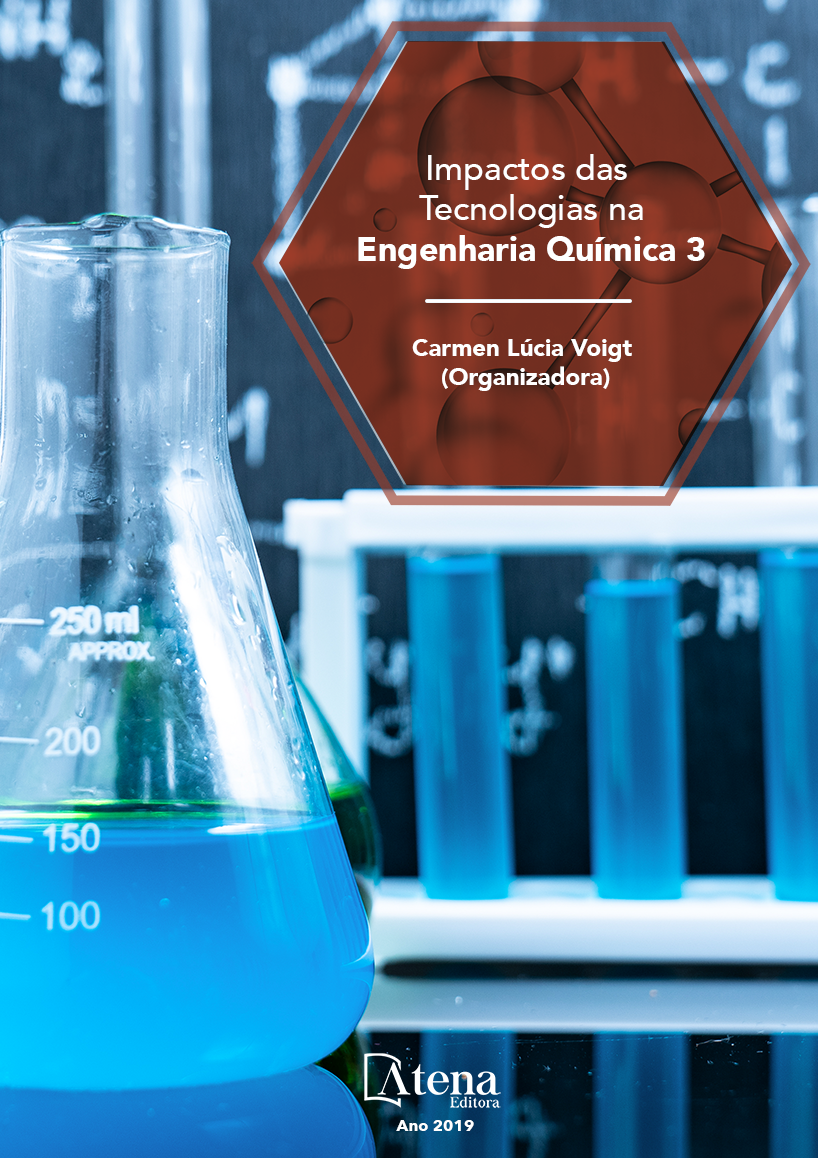
DEGRADAÇÃO DE CORANTES ALIMENTÍCIOS UTILIZANDO LAFEO3 COMO CATALISADOR EM REAÇÃO FOTO-FENTON SOLAR
Nesse trabalho foram sintetizadas
partículas de LaFeO3 pela rota solvotérmica.
O material obtido foi caracterizado através
de difração de raios-X (DRX) e isotermas
de adsorção-dessorção de N2. A atividade
catalítica deste material foi avaliada através
da degradação de dois corantes tipo azo,
frequentemente usados pela indústria de
alimentos, o amarelo tartrazina e vermelho
amaranto, em reação foto-Fenton sob luz solar.
Os resultados de caracterização confirmam a
formação da ferrita de lantânio, com estrutura
cristalina e área superficial de 5,04 m²/g. A
LaFeO3 apresentou boa atividade fotocatalítica
na reação foto-Fenton, solar removendo 100%
da cor da solução com amarelo tartazina após 75
minutos, e após 30 min para o corante vermelho
amaranto. As quantidades utilizadas na reação
foram de 0,3 g/L de catalizador e 2,8 mmol/L de
H2O2. Ambas as reações apresentaram baixa
lixiviação de ferro do catalisador nas soluções.
DEGRADAÇÃO DE CORANTES ALIMENTÍCIOS UTILIZANDO LAFEO3 COMO CATALISADOR EM REAÇÃO FOTO-FENTON SOLAR
-
DOI: 10.22533/at.ed.31919010431
-
Palavras-chave: Ferrita de lantânio. Corantes. foto-Fenton solar.
-
Keywords: Lanthanum ferrite. Dyes. Photo-Fenton solar.
-
Abstract:
In this work, LaFeO3 particles were
synthesized by the solvothermic route. The
material obtained was characterized by X-ray
diffraction (XRD) and adsorption-desorption
isotherms of N2. The catalytic activity of this
material was evaluated by the degradation
of two azo dyes, frequently used by the food
industry, tartrazine yellow and amaranth red,
by Photo-Fenton reaction under sunlight. The
characterization results confirm the formation of
lanthanum ferrite, with crystalline structure and
surface area of 5.04 m²/g. LaFeO3 presented
good photocatalytic activity in the photo-fenton
reaction, solar removing 100% of the solution
color with yellow tartazin after 75 minutes, and
after 30 min for the amaranth red dye. The
amounts used in the reaction were 0.5 g / L of catalyst and 2,8 mmol / L of H2O2. Both
reactions presented low iron leaching of the catalyst in the solutions.
-
Número de páginas: 15
- Fernanda Caroline Drumm
- Siara Silvestri
- Sérgio Luiz Jahn
- Edson Luiz Foletto
- Patrícia Grassi


